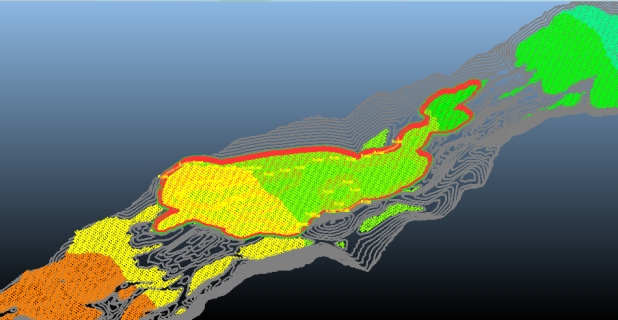|
|
Automated Pit Design Tools Using Studio OP's Automated Design Tools |
Automated Pit Design Tools in Studio OP

Automated Pit Design Tasks Overview
Studio OP provides a set of tools for the automated design of both pits and dumps.
This topic provides a summary of these tools. For an overview of
how pit and dump design tasks can be used
in Studio OP, click here.
Task Prerequisities
To access the Pit Design task, the following must exist:
-
a pit must be defined
-
a topography file must be defined
-
If required, a constraining surface should be defined (this acts as a lower contact surface for the design)
-
a set of bench definitions must exist
-
slope regions must be defined
Optionally, you may either create or load constraint strings to constrain your pit projection.
Task Areas
The Auto Pit Design task is split into the following sections:
- Auto Pit Design: define the design projection direction (bottom-up, top-down) and set up roads and constraints. You can also use this panel to calculate new design strings and surfaces (according to your geotechnical parameters) and decide if bench evaluation will be performed. You define all settings as a scenario, and you can define as many scenarios as you like. More...
- Conditioning: the Conditioning tab is used to configure how design strings for pits are blended between regions for each pit design scenario. It is also used to set up other rules for how strings are projected, such as the maximum slope or berm width change over a given distance and how filleting radii are applied. More...
-
Berm Tapering: this tab is used to control how (or if) berm tapering is applied for a scenario, either throughout the pit or for individual bench constraints. More...
- Advanced: this panel is used to define advanced settings for your automated designs, such as how gradients are calculated/applied, the evaluation legend to be used and what colours to use to display design strings and surfaces. These settings are applied to all defined scenarios. More...
|
|
Related Topics |
|
|
Auto Design Tasks Introduction |


